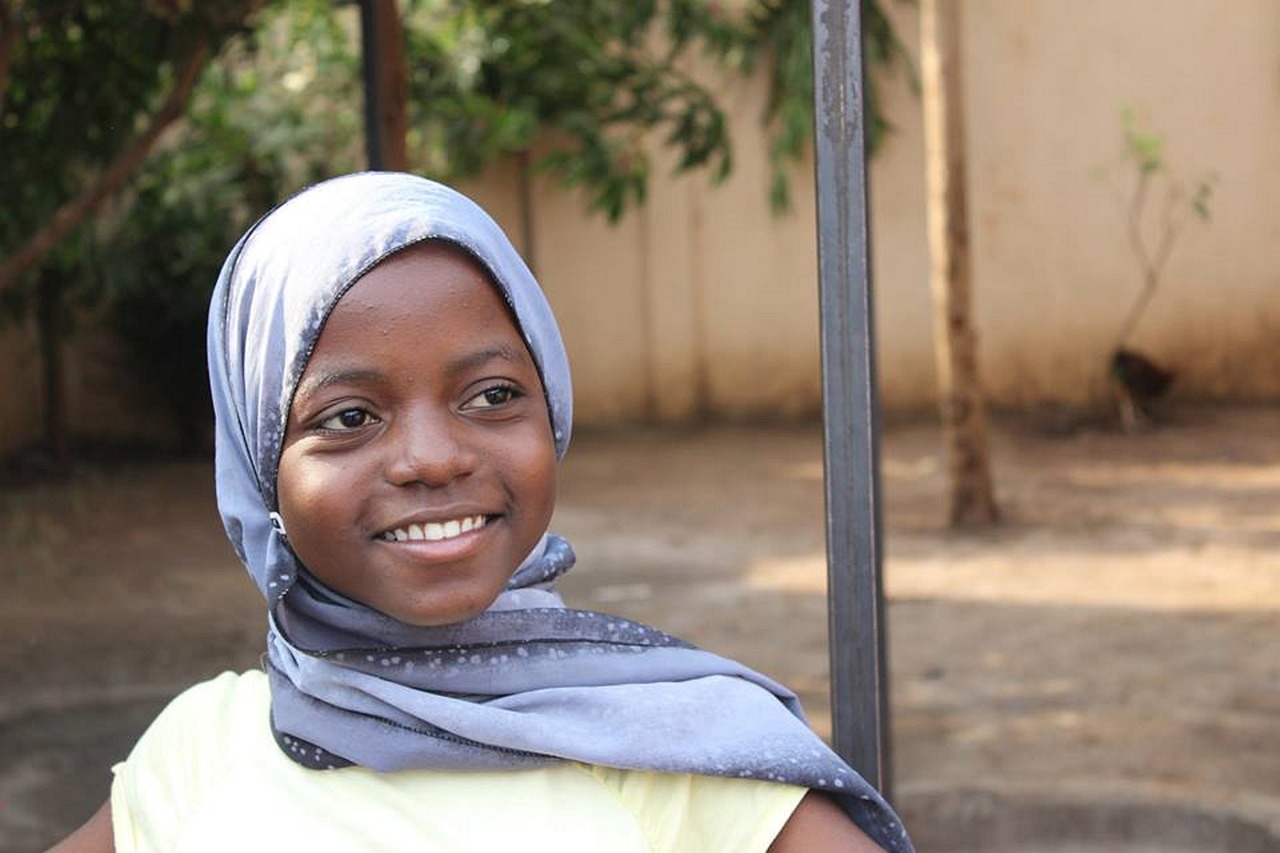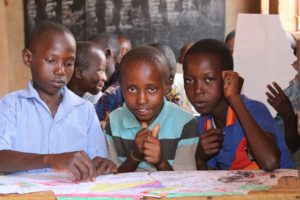Summary of the Swahili A-Wa Noun Class
In this post we’ll look at the Swahili A-Wa Noun Class. First, we’ll start with an overview of the types of nouns that fall into this class. Then we’ll give a summary of the agreement prefixes and infixes. After that we’ll take a closer look at adjectives in this class, then possessives, then verbal agreement, locatives, demonstratives, and relatives. We’ll give examples along the way to show you how to use everything.
This post is part of a series on Swahili noun classes. For an overview, see this post. To learn about each noun class in depth, check out these posts: The A-Wa Class, the Ki-Vi Class, the Li-Ya Class, the U-I Class, the I-I Class, the U-Zi Class, the I-Zi Class, the Ya-Ya Class, the Ku-Ku Class, the PaKuMu-PoKoMo Class.
Overview of the A-Wa Class
The A-Wa noun class includes all animate nouns, people or animals, for example:
- mtu, watu (person, people)
- mtoto, watoto (child, children)
- mwalimu, walimu (teacher, teachers)
- rafiki, marafiki (friend, friends)
- simba (lion, lions)
- mbwa (dog, dogs)
The A-Wa class also includes some nouns that refer to dead or supernatural beings, for example:
- maiti (corpse, corpses)
- mapepo (evil spirit, evil spirits)
- malaika (angel, angels)
Summary of agreement
The following table summarizes all of the agreement prefixes as well as the demonstratives. We’ll look at each of these in more detail.
| adjective | possessive | subject | object | demonstratives | relatives |
| m-/wa- | w/y-//w-/z- | a-/wa- (yu-/wa-) | m-, mw-/wa- | huyu, hawa huyo, hao yule, wale | ye-/o- |
Note: Demonstratives in Swahili come in three types. For A-Wa nouns, huyu (this) and hawa (these) refer to nouns that are nearby. Huyo (that) and hao (those) refers to nouns to are further away, and yule (that over there) and wale (those over there) refer to nouns at a distance.
Adjectives
The adjective agreement prefixes for the A-Wa class are m– in the singular and wa– in the plural.
- mtu mzee, watu wazee (an old person, old people)
- mbwa mkubwa, mbwa wakubwa (a big dog, big dogs)
- mwalimu mpya, walimu wapya (a new teacher, new teachers)
Possessives
The possessive prefix for most nouns in the A-Wa class is w-, in both the singular and plural:
- mwalimu wetu, walimu wetu (our teacher, our teachers)
- mbwa wako, mbwa wako (your dog, your dogs)
But nouns that refer to personal relationships, for example rafiki (friend) and most family terms, take y– in the sigular and z- in the plural:
- rafiki yangu, marafiki zangu (my friend, my friends)
- baba yangu (my father)
- mama yangu (my mother)
- dada yangu, dada zangu (my sister, my sisters)
Verbal Agreement
The verbal subject agreement prefixes for the A-Wa class are the same as its name, a- in the singular and wa– in the plural.
- Mtu amelala.
The person is sleeping. - Watu wamelala.
The people are sleeping. - Simba amelala.
The lion is sleeping. - Simba wamelala.
The lions are sleeping.
If the subject is a pronoun referring to a human being, there is a special set of pronouns and verbal agreement prefixes. The third person suffixes are the same as with other A-Wa nouns, but the first and second person markers are only used with human subjects.
| I (mimi) | ni- | we (sisi) | tu- |
| you (wewe) | u- | you plural (nyinyi) | m- |
| he/she (yeye) | a- | they (wao) | wa- |
- (Mimi) Ninalala.
I am sleeping. - (Yeye) Amelala.
He is/She is sleeping. - (Wao) Wanalala.
They are sleeping. - (Sisi) Tunalala.
We are sleeping.
Locative Agreement
The prefixes yu-/wa– are used on the locatives –ko, –po, and –mo. Remember that –ko refers to a general location, –po refers to a specific location, and –mo refers to an interior location. The location itself may take a location suffix such as –ni.
- Mwalimu yuko wapi? Mwalimu yumo darasani.
Where is the teacher? The teacher is in(side) the classroom. - Walimu wako wapi? Walimu wako shuleni.
Where are the teachers? The teachers are at school.
Object Infixes
The object infixes for the A-Wa class are m(w)- in the singular, and wa– in the plural.
- Mbwa? Ninamwona.
The dog? I see it. - Watoto? Ninawaona.
The children? I see them.
If the object is a pronoun refering to a human being, the infixes are: –ni– (me), –ku– (you, singular), –m/mw– (him, her), –tu– (us), –wa– (you, plural), –wa– (them).
- Ninawaona.
I see them. - Unaniona.
You see me. - Tunamwona.
We see him/her.
Demonstratives
The demonstratives for the A-Wa class are huyu (this), hawa (these), huyo (that), hao (those), yule (that over there), wale (those over there).
- mwanamke huyu (this woman)
- wanawake hawa (these women)
- mto huyo (that person)
- wato hao (those people)
- mhandisi yule (that engineer over there)
- wahandisi wale (those engineers over there)
Relatives
The relative agreement infixes for the A-Wa noun class are ye– in the singular and o- in the plural. They can appear as infixes in the verb of the relative clause (aliyelala) or as suffixes on amba (ambaye).
- mtu aliyelala… /mtu ambaye amelala… (the person who is sleeping…)
- watu waliolala… / watu ambao wamelala… (the people who are sleeping…)
Get on the road to speaking Swahili with the Language Garage!
We hope you’ve enjoyed learning the Swahili A-Wa Noun Class. If you’d like to learn more:
- Create a free Language Garage account to access tons of Swahili vocabulary, grammar, and culture.
- Follow us on Facebook, LinkedIn, BlueSky, Twitter, Threads, Instagram, or Pinterest. We publish lots of Swahili vocabulary, grammar, and culture notes, so it’s a great way to pick up some new vocabulary and practice.
- Check out our other posts on Swahili language, culture, and more.
- Enroll in affordable, flexible, and personalized private online Swahili lessons or sign up for a small group online Swahili class.
Image by Michelle Raponi from Pixabay






